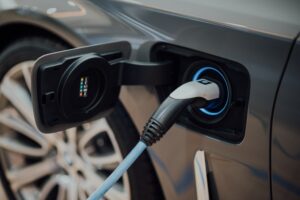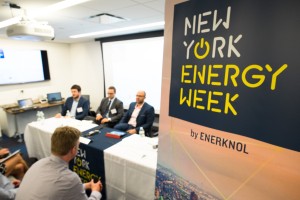The first series of funding applications for the program to build new EV charging infrastructure across the United States is now open. The scheme is called Charging and Fueling Infrastructure (CFI) Discretionary Grant Program, and is a part of the Bipartisan Infrastructure Law.

Overseen by the Department of Transportation, the program is set to provide a total of $2.5 billion in grants over the course of five years. The objective is to expand EV charging infrastructure across the country and make it more accessible to disadvantaged and underserved communities throughout the U.S.
Parties that are eligible to apply for the program have been published by the Biden-Harris administration in its Notice of Funding Opportunity. The closing date for the first round of applications is on the 30th of May 2023.
The CFI program will help advance U.S. climate change goals
The Biden-Harris administration has set a number of climate change goals to achieve by 2030. The first is to build up to 500,000 EV charging stations. The CFI program funding will significantly help to achieve this goal. The second is to cut national greenhouse gas emissions by 50-52%.
The CFI scheme will supplement the $5 billion National Electric Vehicle Infrastructure (NEVI) Formula Program. The difference is that the NEVI scheme provides funding to build EV infrastructure, the CFI program will provide competitive grants.
The two sections of the CFI program
The CFI program can be split into two parts, with each receiving half the allocated funding for the five year period. The two parts are:
- The Community Program: The Community Program sets aside $1.25 billion to construct EV charging and alternative fueling infrastructure. Alternative fueling infrastructure includes hydrogen, propane and natural gas. The infrastructure would be located in publicly accessible areas such as public roads, public schools, public parks and parking spots at public facilities.
- The Corridor Program: The Corridor Program allocates $1.25 billion in funding to construct EV charging and alternative fueling infrastructure along designated alternative fuel corridors (AFCs). An AFC is a number of equally spaced alternative fuel stations along national highway system corridors.
Other EV-related initiatives
The CFI program is a part of a series of key initiatives by the Biden administration to boost EV infrastructure in the US. Some other important initiatives include:
- Build America, Buy America plan: President Biden’s plan to encourage companies to invest in the domestic production of EV charging parts.
- Ride and Drive Electric research and development program: This program, financed by the Joint Office of Energy and Transportation will look at how electrification will economically benefit underserved and disadvantaged communities. It will look at ways on optimizing the economic, social, and environmental benefits for these communities.
Successful transition to electric and alternative fuel-based transport requires cross-collaboration in the transportation and energy industry. New York Energy Week brings together key people in the energy market across various sectors such as finance, government, law, media and academia. Find out some of the ways you can get involved here. NYEW is also hosting key market players in the U.S. energy industry for its decennial anniversary between June 19th to June 21st 2023.


